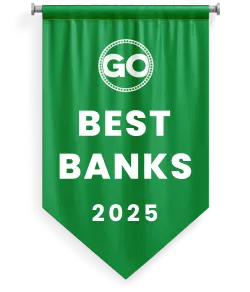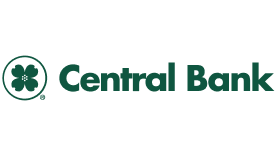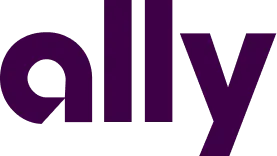Central Trust Bank Review: Accounts, Rates and What To Know
Commitment to Our Readers
GOBankingRates' editorial team is committed to bringing you unbiased reviews and information. We use data-driven methodologies to evaluate financial products and services - our reviews and ratings are not influenced by advertisers. You can read more about our editorial guidelines and our products and services review methodology.

20 Years
Helping You Live Richer

Reviewed
by Experts

Trusted by
Millions of Readers
ON THIS PAGE
- Central Trust Bank at a Glance
- The Central Bank Checking Accounts
- The Central Bank Savings Accounts
- The Central Bank Money Market Accounts
- Trust and Wealth Management Services
- Digital Banking Experience
- How Does The Central Bank Compare?
- FDIC Insurance and Safety
- Final Take to GO: Is Central Trust Bank Worth It?


Sign up for Free Checking with a $0 minimum deposit and no monthly maintenance fee
The Central Bank has five checking account options and two savings and money market accounts. Some checking accounts earn interest, include credit monitoring services, and identify theft protection.
Central Trust Bank is a regional financial institution best known for its trust services, wealth management offerings and traditional banking products. With a footprint centered in Missouri and surrounding areas, Central Trust Bank focuses on relationship-driven banking rather than competing on headline interest rates.
If you’re considering Central Trust Bank, here’s what to know about its accounts, rates and who it’s best suited for.
Central Trust Bank at a Glance
| Category | Details |
|---|---|
| Bank type | Regional bank with trust and wealth focus |
| Primary footprint | Missouri and nearby states |
| FDIC insured | Yes, up to standard limits |
| Known for | Trust services, estate planning, relationship banking |
| Not known for | Market-leading deposit rates |
The Central Bank Checking Accounts
The Central Bank has five checking account options: Free Checking, Preferred Interest Checking, MaxMoney Checking, My Choice Checking, and World Checking. Free checking requires no minimum deposit or monthly fees. Preferred Interest Checking and World Checking earn interest. MaxMoney Checking and World Checking offer credit monitoring services.
What To Expect
- Standard personal checking options
- Monthly fees that may be waived with qualifying balances
- Debit card and online banking access
- Branch-based customer service
These accounts are best suited for customers who value local service and in-person support rather than fee-free or high-interest checking.

Best For
Mobile App
Banking in Missouri
Low Monthly Fees
Loan Options
Low Minimum Deposit
5 Checking Account Options
Central Bank offers flexible checking accounts, but some require a certain balance amount to avoid fees.
Fees
$0 to $20
APY
N/A
Min Opening
$0
Pros
- Diverse checking account options
- MaxMoney Checking monitor Dark Web
- Preferred interest checking integrates with Quicken
Cons
- Many accounts have to maintain a certain balance or activity requirements to waive fees.
- Higher balance requirements to earn interest
- The website isn’t clear on interest rates or minimum monthly deposits.
Quick Take
Several checking account options cater to different financial needs. Individuals will have to read account terms to avoid fees. Information on the website isn’t always clear on minimum deposits, so some may have to visit a branch or call customer service to learn more.
Show Pros, Cons and More
Hide Pros, Cons and More
The Central Bank Savings Accounts
The Central Bank has two savings accounts: A SaveUp Savings Account and a Youth Savings Account. The SaveUp Savings Account requires a minimum deposit of $50, while the Youth Savings Account requires a minimum of $25.The SaveUp savings has a monthly maintenance fee, but it can be waived if you meet specific requirements.
- SaveUp Savings requires a minimum balance of $50 to waive the $2 monthly service fee
- Youth Savings account requires a minimum deposit of $25 to open and can be opened at a branch
- FDIC insured
- SaveUp Savings has access to the RoundUp feature, which automatically allows you to round purchases from your checking to your savings account with a debit card transaction
- SaveUp Savings earns interest. You must visit a branch to find out APY and rate information or call customer service.

Best For
Mobile App
Banking in Missouri
Low Monthly Fees
Loan Options
Low Minimum Deposit
Automated Savings With RoundUp
The Central Bank’s savings accounts offer low deposit requirements and automated savings tools, but interest rate details require contacting customer service.
Fees
Starting at $2
APY
Check with your local branch for details
Min Opening
$50
Pros
- Low minimum deposit
- Easily to waive fees with a low minimum balance
- Automated savings tool with RoundUp
- Youth Savings makes it easy to teach kids how to save money
Cons
- Youth Savings accounts can only be opened at a branch
- Limited information on APYs and interest rates online
- Limited physical branches
Quick Take
The Central Bank has two savings accounts for customers. Although the minimum deposits are low, APYs and interest rate information are not readily available online.
Show Pros, Cons and More
Hide Pros, Cons and More
The Central Bank Money Market Accounts
The Central Bank’s Money Market account requires a $50 minimum opening deposit. There is also a monthly fee of $10 if you don’t meet specific requirements. All funds are FDIC insured and interest is credited monthly.
- Minimum deposit of $50
- Must keep a balance at $1,000 to avoid a $10 monthly maintenance fee
- Earns interest
- Can write up to six checks
- Free mobile banking with Central Bank App

Best For
Mobile App
Banking in Missouri
Low Monthly Fees
Loan Options
Low Minimum Deposit
A Money Market Account With Tiered Interest
Central Bank’s Money Market account offers tiered interest rates and a low opening deposit but requires a $1,000 balance to waive fees, with APY details unavailable online.
Fees
$10, waivable
APY
Check with your local branch for details
Min Opening
$50
Pros
- Low minimum deposit
- Low maintenance fee
- Earns tiered interest rates
Cons
- APY information isn’t easily found online
- Limited physical branches
- Minimum balance to waive fees could be too high for some customers
Quick Take
Central Bank Money Market account requires only a $50 minimum deposit, but APY and interest rate information is not easily found online. Also, customers may find the minimum balance of $1,000 too high to maintain.
Show Pros, Cons and More
Hide Pros, Cons and More
Trust and Wealth Management Services
This is where Central Trust Bank stands out.
Core Services Include:
- Trust administration
- Estate and succession planning
- Investment management
- Retirement and charitable planning
For high-net-worth individuals or families seeking long-term fiduciary and advisory relationships, Central Trust’s trust services are a major differentiator.
Digital Banking Experience
Central Trust Bank provides essential digital tools, though its platform is more functional than cutting-edge.
Features Include:
- Online and mobile banking
- Bill pay and account monitoring
- Electronic statements
Customers who prefer branch-based support with basic digital access are likely to be satisfied. Fully digital-first users may find the experience limited compared with online-only banks.
The Central Bank app is rated 4.8 out of 5 stars on Google Play. The Central Bank app was ranked 4.9 out of 5 stars in the Apple store.
How Does The Central Bank Compare?
SELECTED BANK
MOST COMPARABLE
MOST COMPARABLE
Fees
Fees
Fees
$0 to $20
$0
$5 to $35 waivable monthly fee
APY
APY
APY
N/A
to
Up to
Min Opening
Min Opening
Min Opening
$0
$0
$25
SELECTED BANK
MOST COMPARABLE
MOST COMPARABLE
Fees
Fees
Fees
Starting at $2
$0
Up to $12 monthly service fee – can be waived
APY
APY
APY
Check with your local branch for details
Up to for Platinum Savings accounts
Min Opening
Min Opening
Min Opening
$50
$0
$25
SELECTED BANK
MOST COMPARABLE
MOST COMPARABLE
Fees
Fees
Fees
$10, waivable
$0
No monthly service fee
APY
APY
APY
Check with your local branch for details
to
Min Opening
Min Opening
Min Opening
$50
$0
$25
The Central Bank vs. Ally Bank
Ally Bank is an exclusively online bank offering high-yield savings and no-fee-checking accounts. However, that isn’t possible if you want to sit down with a customer service representative at Ally. You must call customer service to determine if your banking needs can be addressed. The Central Bank combines traditional banking and an online platform and offers traditional banking services and options to talk to someone in person about loans and wealth management.
The Central Bank vs. Wells Fargo
Wells Fargo offers a broader range of checking accounts but often has higher monthly maintenance fees and stricter requirements to waive them than The Central Bank. The Central Bank has regional, community-oriented banking accounts with low opening deposits and fees that can be easily waived.
The Central Bank vs. CIT Bank
CIT Bank offers no-penalty CDs with rate information that is easily accessible since it is an online institution. The Central Bank only offers two types of CDs, either 13 or 25-month terms, and rates are not advertised online. You must contact the branch or customer service to determine rate information. CIT Bank rates are easily found on the website, and various CD terms are available.
FDIC Insurance and Safety
Central Trust Bank is FDIC-insured, meaning deposits are protected up to $250,000 per depositor, per ownership category. This provides the same level of safety as other insured banks, even if rates are lower.
Final Take to GO: Is Central Trust Bank Worth It?
Central Trust Bank is best viewed as a relationship-driven institution, not a rate leader. Its strength lies in trust, estate and wealth services rather than deposit products designed to maximize yield.
If you value personalized service, fiduciary expertise and local banking relationships, Central Trust Bank may be a strong fit. If your primary goal is earning the highest possible interest on savings or CDs, you’ll likely find more competitive options elsewhere.
FAQ: Central Trust Bank Review
- Is Central Trust Bank FDIC-insured?
- Yes. Central Trust Bank is FDIC-insured up to standard limits.
- Does Central Trust Bank offer high-yield savings accounts?
- No. Savings and money market rates are generally lower than top high-yield accounts available nationally.
- What is Central Trust Bank best known for?
- Central Trust Bank is best known for its trust services, estate planning and wealth management offerings.
- Is Central Trust Bank a good choice for everyday banking?
- It can be for customers who prefer local branches and relationship banking over digital-first features.
- Should rate-focused savers consider Central Trust Bank?
- Generally no. Savers prioritizing high APYs may find better options elsewhere.
Rates are subject to change; unless otherwise noted, rates are updated periodically. All other information on accounts is accurate as of Jan. 2, 2026.
Editorial Note: This content is not provided by any entity covered in this article. Any opinions, analyses, reviews, ratings or recommendations expressed in this article are those of the author alone and have not been reviewed, approved or otherwise endorsed by any entity named in this article.
To discover the Best Banks by state, GOBankingRates analyzed the top institutions (excluding online banks and neobanks) by state branch locations. To determine rankings, GOBankingRates looked at the following factors: (1) total assets as sourced from the FDIC; (2) checking product minimum deposit; (3) monthly checking fee ratio (percentage of the minimum to avoid fees compared to the monthly fee itself); (4) savings product minimum deposit; (5) savings product APY; (6) Bauer rating (out of 5 stars); (7) products/services offered (auto loans, mortgage loans, credit cards, investment services and insurance); and (8) the average mobile app rating between the Google Play (Android) and Apple stores. All factors were then scored and combined, with the lowest score being the best. Factors (1), (2) and (4) were weighed 0.5 times, factor (5) was weighed 2.5 times and factor (7) was weighed 1.5 times. All products and offerings had to be available as of Nov. 8, 2024, to be considered. Rates are subject to change; unless otherwise noted, rates are updated periodically. All other information on accounts is accurate as of Dec. 20, 2024. To qualify as one of the Best Banks in the state, the institution needed at least five branch locations in the respective state, with some exceptions for larger and/or smaller states.
 Written by
Written by  Edited by
Edited by 













